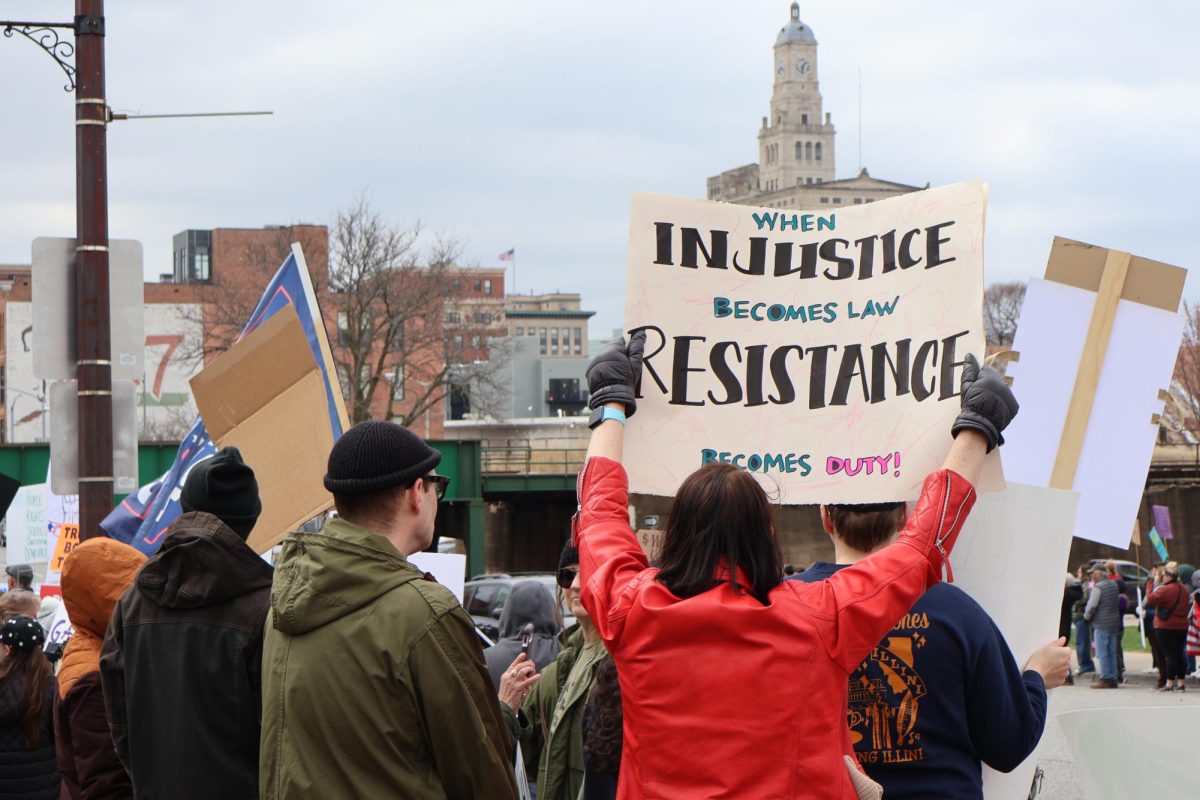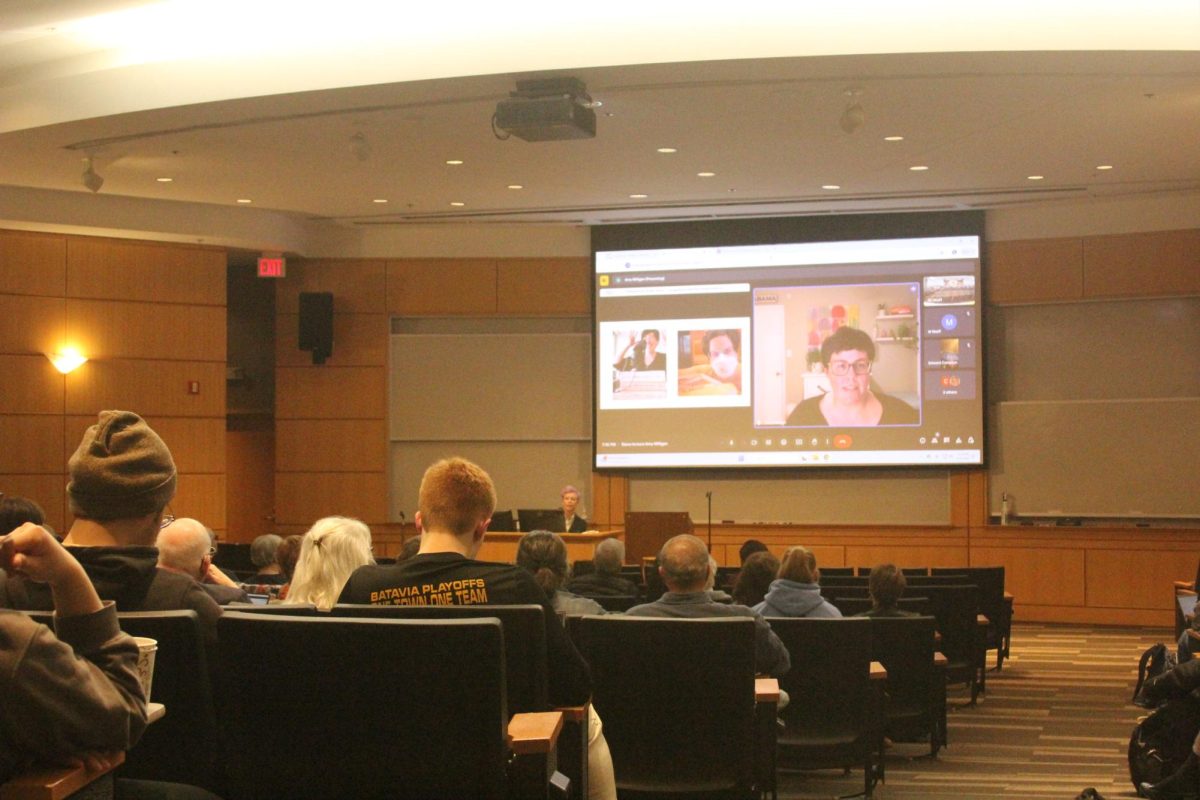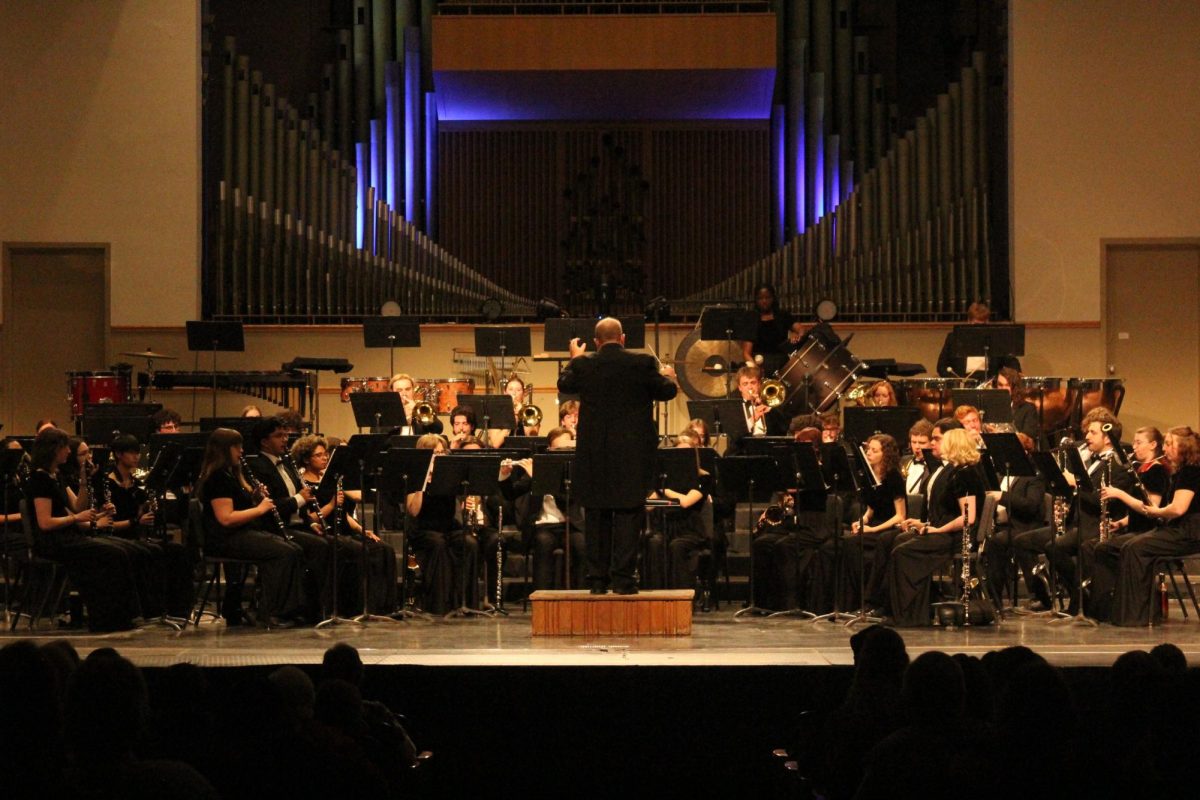Just over a month ago, an unarmed teenager was shot and killed by a police officer. Michael Brown, the 18-year-old who was killed on August 9, did not get a chance to begin his freshman year of college. Darren Wilson, the officer responsible for the shooting, has not been arrested, has no warrant for an arrest, and has effectively disappeared.
Our justice system operates on a basis of innocent until proven guilty. Accusations that Brown deserved to be given a death sentence for stealing cigarillos, which has been proven false by convenience store footage released by the Ferguson police showing Brown paying for the item, are foundless as well as unconstitutional.
The punishment must fit the crime, and nothing Michael Brown did on August 9 deserved death. Accusations of guilt aimed at Wilson have yet to be given a day in court.
As a white person, it can be incredibly uncomfortable to discuss the events in Ferguson without occasionally feeling personally attacked. I am white, and the person responsible for the death of an innocent young man is also white. People of color in the United States, especially black people, are angry and afraid because of the systematic, institutionalized actions of white people.
Their vocal expressions of anger, hurt and fear need to be listened to despite how uncomfortable it can be to hear. If this were an isolated incident, there would be no need for the communities who are being harassed, abused and murdered in the streets, in the backs of police cars and in holding cells to be angrily calling for systematic, institutional change.
This is not an isolated incident. Police brutality is fueled by institutionalized racism, which benefits people like Darren Wilson, and people like me. Police brutality has also led to the deaths of men like Eric Garner, choked to death in New York by a police officer. The use of chokeholds are banned by the NYPD. This is merely one example amongst dozens, if not hundreds, of black people killed by police in our country’s past.
Institutionalized racism did not end in 1970. It is alive and well today, and I benefit from it, because white privilege is upheld by it. I do not fear for my safety when in the presence of police, because I know that statistically, any given police officer is most likely going to be white like me. Police officers who are people of color will not profile me as a gang member, a drug dealer or a prostitute due to my race.
Because of white privilege, police officers do not text their friends that people who look like me are “monkeys” who “need to have a Ferguson pulled on them.”
This is a real quote from a white Louisiana cop who then resigned when the messages came to light, according to News One, an online news resource directed toward black people in the United States.
Wilson’s track record of abusing his position as a police officer, and targeting black people, does not start in Ferguson. The Washington Post reported that Wilson’s previous job as a police officer in Jennings, MO was terminated, along with the entire force, because the tension between the white police force and the black residents was so bad. New officers were brought in to create an entirely new force.
Ferguson has a similar problem – in a town that is two-thirds black people, only three of the 53 police officers are black. This could be why the police department responded to the peaceful protests with riot gear, rubber bullets (which can be lethal) and tear gas (which is an abortifacient).
According to KSDK, a St. Louis-area news station, the Ferguson Police Department has no official way of keeping track of use-of-force complaints levied against their officers, allowing the officers themselves to complete the paperwork when civilians complain. These reports, when they are filled out, are never placed in officer files. This means that there is no way to determine how often police in Ferguson, including Wilson, used excessive force in the line of duty.
What can white people who recognize and want to challenge injustice do to stop people like Darren Wilson from being able to shoot and kill people like Michael Brown, and still be walking free without even having charges brought against him, for more than a month?
We can listen. The uncomfortable, angry truths spoken by black people in the news, on Twitter, on your dorm floor, in your calculus class must not fall on deaf ears.
We can challenge others. Speaking up when other privileged people say racist or offensive things is an active way to challenge injustice on a wider scale. Start by educating yourself, family and friends on what oppressed groups deal with and what they have to say about oppression.
Elie Wiesel, a survivor of the Holocaust, said that, “We must take sides. Neutrality helps the oppressor, never the victim. Silence encourages the tormentor, never the tormented. Sometimes we must interfere.”
While these words were written long before Michael Brown was even born, the conditions surrounding his death hold us accountable to follow them still. When an unarmed resident is shot and killed by the police, question the motives of the person holding the gun, not what the victim was doing to “deserve” death (as though any of us can say who deserves to live, and who deserves to die).
Suey Park, a noted academic and activist, challenged her Twitter followers recently to ask those they hurt, “what does justice look like to you in this situation?”
This question can be asked on a wider scale than just on a personal level. Because I am part of the privileged group in this country as a white person, it is my responsibility to acknowledge my privilege and ask those who are oppressed what justice looks like, not prescribe it. It is also my responsibility to try and dismantle my privilege by acting out this justice in my own life, and by holding those around me to the same standards.
It is the responsibility of any compassionate human, when part of a privileged group, to do the same.
People of color have already been trying to start these processes of justice, healing, and growth, but unexamined white privilege has stood in the way. Joining them in their efforts to change the system is the best way to bring about justice.
Justice comes from taking responsibility
September 10, 2014
0
Tags:
- Augustana College
- Augustana Observer
- Carolyn Muller
- Darren Wilson
- Elie Wiesel
- Eric Garner
- Ferguson
- Huffington Post
- institutionalized racism
- Jennings
- justice
- justice system
- KSDK
- Louisiana
- Michael Brown
- Missouri
- New York
- News One
- Oklahoma City
- police brutality
- racism
- St. Louis
- Suey Park
- United States
- Washington Post
- white privilege
More to Discover




































































































